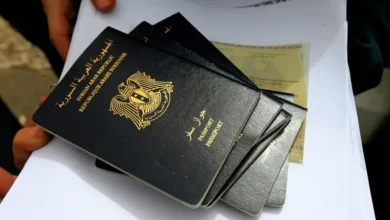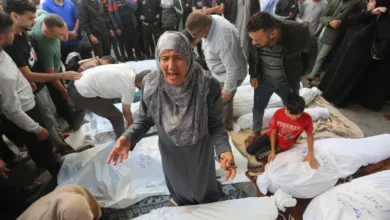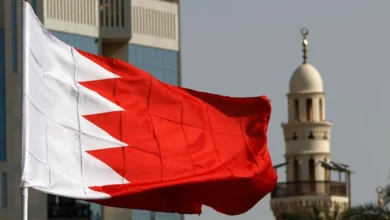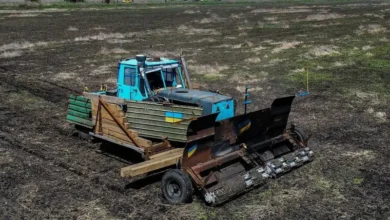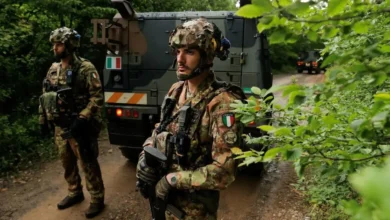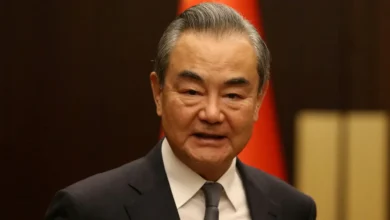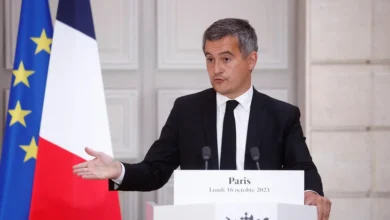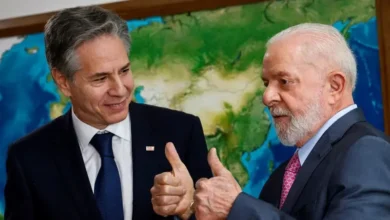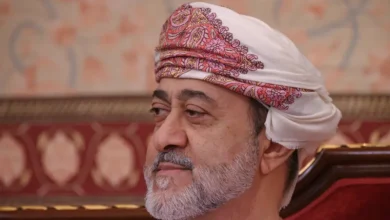‘Most vexing’ test: Can Pakistan’s Sharifs revive talks with India’s Modi?
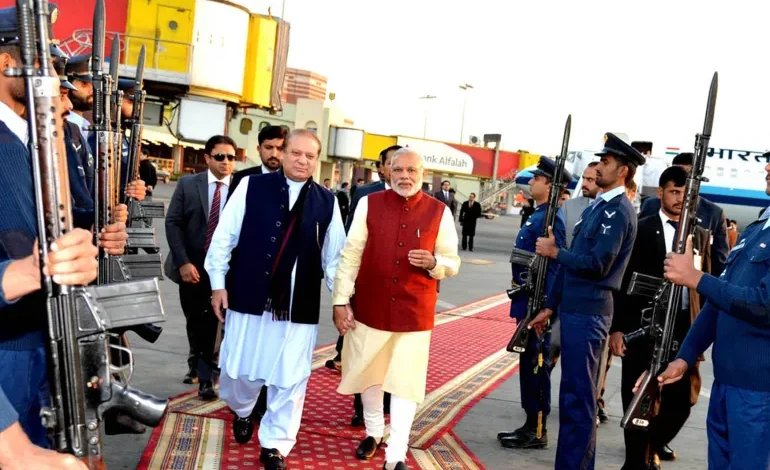
It was a brief, formal exchange.
On March 5, two days after Shehbaz Sharif became Pakistan’s 24th prime minister, his Indian counterpart posted a 13-word message on social media platform X. “Congratulations to @CMShehbaz on being sworn in as the Prime Minister of Pakistan,” the Indian premier wrote.
Sharif took two days to respond. “Thank you @narendramodi for felicitations on my election as the Prime Minister of Pakistan,” he wrote on March 7.
Modi’s congratulatory message and Sharif’s response set off questions, even in a US State Department briefing, about the prospect of a detente between the nuclear-armed subcontinental neighbours that have barely functional diplomatic relations. The State Department weighed in, saying it hoped for a “productive and peaceful relationship” between New Delhi and Islamabad.
But even though the Pakistani prime minister’s elder brother Nawaz Sharif has a long history of seeking breakthroughs with India – including with Modi – analysts on both sides of the border say that the direction of ties can only be gauged after India’s upcoming national elections, scheduled to take place in April and May.
Maleeha Lodhi, a retired Pakistani diplomat who has served as ambassador to the United Nations, United States as well as the United Kingdom, said that managing relations with New Delhi will prove the “most vexing” foreign policy test for the current government.
“It’s true that previous PMLN were amenable to engage with India but it used to be reciprocal,” she told Al Jazeera, referring to the Pakistan Muslim League Nawaz (PMLN), the party of the Sharif brothers. “But today there are many obstacles to normalising ties which are not easy to overcome.
“With India going to the polls this year, any significant engagement will have to wait till after the elections.”
Kashmir conundrum
Arguably, the biggest obstacle to any movement towards normalcy between the neighbours remains the question of the Kashmir valley, the picturesque, but contentious Himalayan region over which they have fought multiple wars since gaining independence from British rule in 1947. The region is claimed in full by both, but each only governs parts of it.
New Delhi has accused Islamabad of backing Kashmiri armed rebels fighting either for independence or for a merger with Pakistan. Islamabad has denied the allegations, saying it only provides diplomatic support to the region’s struggle for the right to self-determination.
Relations between India and Pakistan further worsened in 2019 when Modi’s Hindu nationalist government revoked Article 370 of the Indian Constitution, which used to give Indian-administered Jammu and Kashmir partial autonomy.
Kashmir is at the heart of the differences between India and Pakistan, and is a subject in which each of the neighbours has set conditions for talks that are unacceptable to the other. India insists that the status of Jammu and Kashmir is an internal matter for the country. Pakistani leaders, on the other hand – including the Sharif brothers – have linked progress in ties with India to a reversal of the 2019 decision by New Delhi.
Former Indian high commissioner to Pakistan, Sharat Sabharwal said that if the aim is to improve relations, the ball is in Pakistan’s court, adding that it was Pakistan that suspended trade as well as downgraded diplomatic representation.
“Since then, it has made engagement with India contingent upon India reversing its move to end the special status of Jammu and Kashmir under the Indian Constitution. This is just not going to happen,” he told Al Jazeera. “It is for the Pakistan government to take a more pragmatic and constructive view if things are to move forward.”
The Sharif touch
Yet, despite the tough posturing on both sides, some analysts are cautiously optimistic about the possibility of a renewed attempt by the two governments to improve ties, in large part because of the history that the Sharifs share with Modi and his Bharatiya Janata Party.
In February 1999, the then-Indian Prime Minister from the BJP, Atal Bihari Vajpayee, took a bus ride across the border to Lahore to meet Nawaz Sharif, who was then in his second stint as prime minister.
Nawaz and Vajpayee signed a treaty that was seen as an historic confidence-building breakthrough between the two countries, less than a year after both of them conducted nuclear tests that had escalated tensions in the region.
However, three months after the treaty, the two countries engaged in a war in Kargil in Indian-administered Kashmir. India accused Pakistani soldiers of infiltrating into territory it controlled. Nawaz blamed his then-military chief, General Pervez Musharraf and other top commanders for orchestrating the incursion behind his back.
Only a few months later, Musharraf carried out a military coup in October 1999 in which Sharif was removed from power, just two years after assuming charge as the prime minister.
A year after Nawaz finally returned to power in 2013, the BJP, too, came back into office after a decade in opposition – this time with Modi as prime minister. Nawaz joined leaders from across South Asia in travelling to New Delhi for Modi’s oath-taking ceremony.

